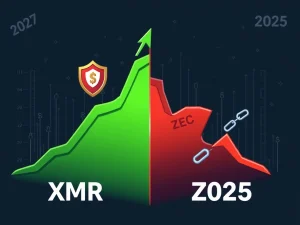Samourai Wallet Founders Face Shocking Guilty Plea in Crypto Mixing Case

In a shocking turn of events, the co-founders of Samourai Wallet have pleaded guilty to operating an illegal crypto mixing service. This landmark case could reshape the future of privacy-focused cryptocurrency tools and anti-money laundering (AML) enforcement.
Samourai Wallet Founders Admit Guilt
Keonne Rodriguez and William Lonergan Hill, the masterminds behind Samourai Wallet, changed their plea to guilty in a New York federal court. Originally facing 20-year sentences for money laundering, they negotiated a plea deal for operating an unlicensed money transmitting business, carrying a maximum 5-year sentence.
The $2 Billion Crypto Mixing Operation
Court documents reveal the staggering scale of this case:
- Over $2 billion in transactions processed
- Alleged connections to dark web marketplaces
- Platform operated without proper licensing
How This Impacts Privacy Tools in Crypto
The conviction sends ripples through the cryptocurrency community, particularly affecting developers of privacy-enhancing technologies. Legal experts warn this could:
- Increase scrutiny on open-source crypto projects
- Force developers to prioritize AML compliance
- Potentially stifle innovation in privacy tools
AML Regulations: The New Battleground for Crypto
The Department of Justice (DOJ) has made its position clear – they will aggressively pursue violations of anti-money laundering laws in the cryptocurrency space. This case follows a pattern of similar actions against privacy-focused services like Tornado Cash.
What This Means for Crypto’s Future
As regulators tighten their grip, the cryptocurrency industry faces critical questions about balancing privacy with compliance. This case may set important precedents for how privacy tools are developed and regulated moving forward.
Frequently Asked Questions
What is crypto mixing?
Crypto mixing is a service that obscures transaction trails by combining multiple users’ funds before redistributing them, making transactions harder to trace.
Why is crypto mixing controversial?
While some use mixers for legitimate privacy reasons, they’re often associated with money laundering and illegal activities due to their ability to hide transaction origins.
What sentence do the Samourai Wallet founders face?
They now face up to 5 years in prison for operating an unlicensed money transmitting business, reduced from potential 20-year sentences for money laundering.
How does this affect other privacy tools?
This case may lead to increased regulatory scrutiny of all privacy-focused cryptocurrency services and potentially stricter compliance requirements.
Can crypto mixers operate legally?
Yes, if they register as money services businesses and implement proper AML and KYC (Know Your Customer) procedures, though this often conflicts with privacy goals.










